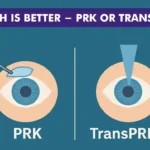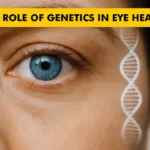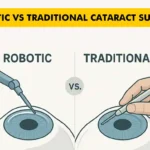The second most common cause of vision loss and blindness is the problem of glaucoma, a group of eye conditions that can affect many people. Glaucoma is the result of damage to the optic nerve from increased pressure of the eye. Intraocular Pressure The human eye is filled with fluid
- aqueous humor in the front chambers
- Behind the lens, there is vitreous humor in the larger rear chamber
For a healthy eye, the pressure of this fluid remains within a safe range because the amount of aqueous humor produced is roughly equal to the amount of flowing out through the pupil. In an eye with glaucoma disease, this drainage system does not work the way it should.
Types of Glaucoma
- Open-angle glaucoma It’s a gradual progression and the drainage canals of the eye become clogged, stopping the fluid from draining effectively and causing the pressure to build. This process is slow and vision isn’t noticeably affected until late in the disease, regular comprehensive eye exams are essential for catching it early on and halting its progress.
- Angle-closure glaucoma Unlike the gradual progression of open-angle glaucoma, angle-closure glaucoma happens very suddenly, when the iris actually blocks the drainage canals. This comes with a variety of symptoms, such as headaches, nausea, eye pain, very blurred vision, and rainbows around lights.
Common Risk Factors
While some people have some risk of developing glaucoma, certain factors can make it more likely. Glaucoma is more common in people over 60 of age. Get regular eye checkups from the best eye hospital.
A major risk factor for glaucoma is heredity. It is estimated that over half of glaucoma cases are familial. Some people with a sibling who has glaucoma is ten times more likely to develop it than someone who doesn’t have it. Some other risk factors may include eye injury and use of steroid.
Why Early Diagnosis?
Vision loss from glaucoma is irreversible and there is currently no cure for the disease, but medication or surgery can stop its progress as long as it is diagnosed in time.The main key to early diagnosis is regular eye exams, especially for those with a high risk of developing the condition. Make sure you’re familiar with your family’s eye health history and treat glaucoma as earliest as possible with the best eye hospital near you.
Read Also: If You Have These Five Symptoms, It Is Glaucoma and मोतियाबिंद इन हिंदी





